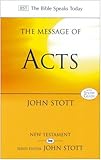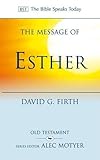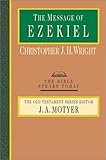

The Pillar New Testament Commentary series is often described as a mid-level commentary, falling somewhere between popular level expositions on the one hand and more academically minded exegetical commentaries on the other. However, weighing in at 450 pages, a more detailed exegesis than his previous Pillar offering on James, so don’t expect a light read.
Colossians Intro
In his introduction to Colossians, Moo deals with two major questions. First is the identity of the author, and second the identity of the false teachers. On the authorship question, he begins by surveying the case against Paul, before providing his own response to it. As with O’Brien’s commentary on Ephesians, he strongly rejects the pseudepigraphical hypothesis. Moo thinks it most likely that Paul wrote it from Rome in AD 60-61.
As for the identity of the false teachers, Moo settles on a syncretistic mixture of paganism, local folk Judaism and Christianity, following Clinton Arnold’s proposal. The best section of the introduction though, is his brief analysis of the theological themes in Colossians. Unsurprisingly the centrality and supremacy of Christ is picked out as the key theme, and there is some interesting material on demythologising the powers (which he returns to in his commentary on 1:16), as well as some helpful thoughts on the place of “rules” in the Christian life.
Colossians Commentary
The commentary itself as extensive and thorough with each verse having a few pages of comments. Moo gives a great deal of attention to structure, especially in introductions to sections. Unsurprisingly, given his involvement with the NIV, he also shows a lot of interest in English translation choices. The commentary itself is based on the TNIV, and Moo will often highlight which translations he feels give the best sense of a verse. In some places he chooses to provide his own paraphrase, which is a helpful way of summarizing, especially if multiple options have been considered.
Colossians is a densely packed epistle. Barely a verse goes by without some tricky concept requiring explanation. Moo sure-footedly guides us through the exegetical possibilities, outlining the major interpretive options before giving us his judgment. He is rarely dogmatic, usually indicating with words like “perhaps”, “probably”, or “tentatively” the degree of certainty he feels about his conclusions. Paul’s statements are often illuminated by considering them in light of the false teaching, in light of his other writings, and detecting many echoes of OT language.
I won’t go into details on his exegesis, but I’ll mention a few highlights. I found him very helpful on circumcision and baptism in 2:11 and on the meaning of the “elements” (στοιχεῖα) in 2:8. I also gained a new perspective on 3:9-10 where he argues that the concept of the “old self/man” does not refer to a nature or part of the individual human being, but rather that the “new self” is a corporate entity (c.f. Eph 2:15 – one new man / humanity).
Philemon Introduction
The introduction to Philemon addresses two main issues. The first, more briefly, he considers a recently proposed alternative to the "traditional" view that Onesimus was a runaway slave. That is, the idea that Onesimus had deliberately gone to Paul in order that he might act as mediator in a dispute. Moo slightly prefers the traditional view.
The other major issue he addresses is that of the New Testament attitude to slavery. He outlines the usual reasons why the NT lacks the explicit condemnation of the institution of slavery that many modern Bible readers would like to find, but does go a little further by tentatively suggesting that the NT writers themselves had not necessarily reached a place where all the implications of their views were fully worked out. Although this sounds like it could be an uncontrolled hermeneutical framework, allowing justification of almost anything, Moo does at least attempt to constrain it by affirming that the NT writers were prevented from writing anything that contradicted the implications of the gospel.
Philemon Commentary
Again, the commentary is thorough. Whenever there is a phrase that could be taken in more than one way (several examples are found in Philemon 6), Moo will carefully outline the possible options, together with supporting evidence, before opting for his favourite. Sometimes I felt that he considered the merits of options that did not seem substantial enough to warrant the space devoted to them (e.g. on verse 9).
Moo considers “fellowship” to be one of the key themes of the letter of Philemon. Whilst he acknowledges that we cannot be sure, he does think that v16 and 21 do hint that Paul is hoping that Onesimus would be set free.
Conclusion
No one who has read any of his previous commentaries will be surprised to learn that this is another excellent offering from Moo. The attention to detail will be a blessing to anyone wanting to home in on a particular word or phrase, but at the same time may make for slow progress for those who like me are working through the entire book.
For my purposes, I would have gladly sacrificed a little detail on structure and allowed Moo to elaborate on some of his interesting ideas such as that of biblically oriented environmentalism mentioned in his comments on Col 1:20. But it would appear that Moo has decided to leave the preaching mainly to Paul and only give pointers towards how he would preach the passage himself.
It is not hard to imagine that Moo will take over the baton from O’Brien of having written the premier evangelical commentary on Colossians & Philemon (which I confess to not having read yet). That is not to disparage O’Brien’s highly regarded work in any way, but Moo’s is more up to date (O’Brien’s was published in 1982), slightly longer, and the Pillar series layout is significantly more reader-friendly than the Word Biblical Commentary series.










